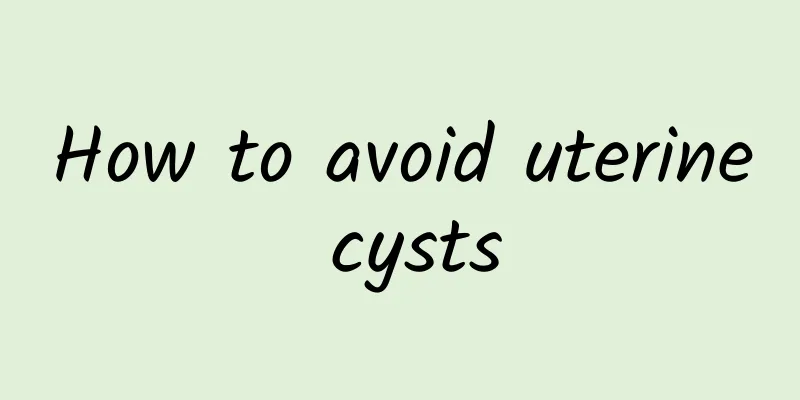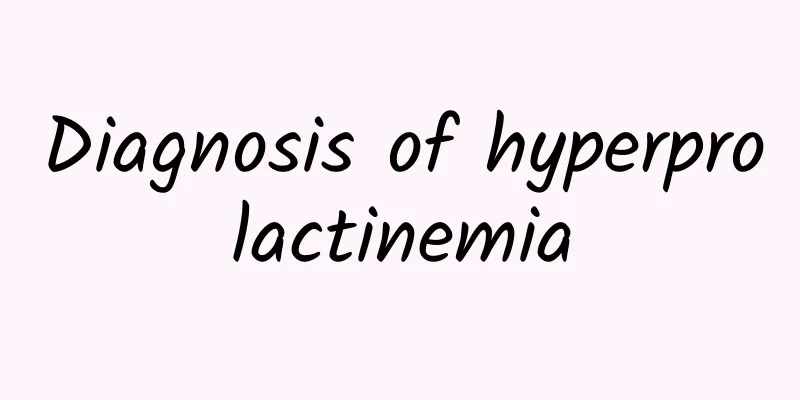Can curing constipation help you lose weight? 6 Must-Read Questions and Answers About Constipation

|
Q1. Am I constipated? I'm not really sure... The general definition of constipation is "no bowel movement for more than 3 days, or even if there is a bowel movement, the daily bowel movement volume is less than 35 grams." After hearing such clear standards, many people may worry and think, "I think I am constipated..." However, some people become constipated even though they don’t have constipation because of the obsessive-compulsive idea that they must have bowel movements every day. In terms of the frequency of bowel movements, some people defecate once a day, while others defecate once every two days, and some even defecate twice a day. But as long as you can defecate and the frequency does not make you uncomfortable, that is the bowel movement frequency that is suitable for you. On the contrary, if you feel anxious about not having a bowel movement, exert unnecessary force when going to the toilet, and frequently use drugs to aid bowel movements, it will put a burden on the intestines. This pressure itself can cause constipation. The point is not to "have a bowel movement every day", but to enjoy your meals without making your stomach feel bloated and uncomfortable. Don't stick to the numbers, it's better to be casual. This is the first step to improve the intestinal environment. Q2. What is the optimal amount of bowel movements per day? The ideal bowel movement is about 150 to 200 grams a day, which is slightly larger than a tennis ball. As for the state, as everyone often says, it should be just the right soft banana shape, with a color between yellow and brown. If the intestinal environment is well maintained, such bowel movements can be carried out smoothly every day. However, this is an ideal state anyway. Instead of focusing on "quantity", it is better to pay attention to whether your body and mind are comfortable. For example, even if you don’t have bowel movements every day and the volume is not much, but you feel refreshed after defecation, then there is no problem. As for not feeling refreshed after defecation, it may be because you eat less to begin with and are prone to constipation when losing weight for this reason. After food enters the intestines, they will move naturally. If the amount of food is small, the intestines will not notice it, so there will be no movement. At this time, you should start to consciously consume water-soluble dietary fiber to serve as the material for defecation, and increase the amount of food and eat breakfast to turn on the switch of intestinal activity. Q3. Can I really lose weight if I cure constipation? Many people can naturally lose 3 to 5 kilograms by curing constipation. This is because the intestinal environment is adjusted, which improves the body's metabolic function. The intestine is an organ that absorbs nutrients and produces blood. However, people with constipation have polluted intestines, so the blood produced by their intestines is also unclean, sticky and of poor quality. Cells also hate such blood and refuse to absorb it. Nutrients with nowhere to go will accumulate in the fat around cells and become subcutaneous fat and visceral fat, thus forming a vicious cycle of "constipation → deterioration of intestinal environment → gaining weight". To cure constipation, you have to adjust the intestinal environment, which will result in the production of good quality blood. If cells throughout the body can absorb this good blood, nutrients can be efficiently applied to where they are needed, and metabolic function will be enhanced. This is how curing constipation can help you lose weight naturally. Q4. Can the weight of stool be as much as 3 kilograms? The so-called stool retention refers to the accumulation of feces that should have been discharged smoothly, as well as intestinal cells that die after completing their mission, due to the deterioration of the intestinal environment. If a person suffers from chronic constipation, the weight of stool may even exceed 3 kilograms. The old stool retained in various parts of the intestines, like garbage floating in the sewer, will hinder the normal peristalsis of the intestines and make it impossible for new food to enter the intestines to be excreted. In addition, abnormal fermentation will excrete toxins, increase bad bacteria, and make the intestinal environment worse. However, if you are too concerned about constipation, lose weight drastically, or take laxatives or enemas, it will cause intestinal inflammation, which will make it easier for stool to accumulate and make constipation more serious. As long as the intestinal environment is adjusted, the stool will be discharged naturally, but extreme methods are useless. Adjusting slowly and naturally is actually the fastest shortcut. Q5. Is there any good way to deal with hard stools? When the stool becomes very hard, first of all, do not force it out. Being anxious not only makes the situation worse, but also creates all sorts of problems. Step 8 of this book will introduce how to massage and postures, etc. Here we will first explain the ingredients that help with bowel movements. Stool remains soft because of water; if it becomes hard, it will have a hard time retaining water. At this time, oil can be used to wrap around the stool to allow it to move smoothly. What I recommend here is olive oil, which is also used to treat constipation in clinics! Olive oil stimulates the small intestine and promotes bowel movements. If you feel that there is some waste accumulated in your stomach, you can use olive oil like a sauce and take more of it actively. The dosage is about two spoons a day. In addition, it is also recommended to eat more bananas rich in magnesium that can soften stools, as well as warm foods such as hot soups that can enhance the function of the parasympathetic nervous system. Q6.Are intestinal regulators effective for people with constipation? There are about 1.5 kilograms of intestinal bacteria in our intestines, and intestinal regulators can help the good bacteria in them function. The so-called good bacteria are useful bacteria that can help intestinal digestion and absorption and increase resistance to fight diseases. We can say that constipation is less likely and the intestinal environment is good, which means that the actions of bad bacteria that have adverse effects on the intestines are inhibited, and good bacteria account for more than half of the intestinal bacteria. If the good bacteria are full of vitality, the functioning of the intestines will become active and constipation can be improved. However, good bacteria are not very resilient, so taking intestinal regulators is a good thing to improve the intestinal environment, even if you take them every day. Doctors also prescribe it when treating constipation. However, the intestinal regulator that suits each person is different, so if you continue to take it but don’t feel any effect, please try another type of intestinal regulator. In addition to medicine, it is also good to consume foods that have a bowel-regulating effect, such as yogurt. This article is provided by Datian Publishing House and is excerpted from "Intestinal Beauty: Health Starts with Intestinal Care! 》 |
<<: 15 must-eat fruits and vegetables for detoxification and weight loss in autumn
>>: Eating winter melon can help you lose weight, reduce fat, treat cough and fight cancer
Recommend
Why do women suffer from repeated cervical erosion? 7 reasons for repeated cervical erosion
The recurrence of cervical erosion has caused ser...
Key points for postoperative care of cervical erosion
Because the treatment time is long and the diseas...
New way to lose weight: Traditional Chinese medicine acupuncture plus fasting on Mondays! Lose 5 kg in 4 weeks, improve physical fitness, and enhance immunity...
You don’t have to count calories desperately to l...
Make light summer lunches! 5 Steps to Serve Shrimp and Vegetable Pasta
Lunch, high protein so you won’t feel hungry unti...
Diagnosis of functional hypothalamic amenorrhea
The diagnostic process of functional hypothalamic...
Left lower abdominal pain without abnormal vaginal discharge
Pain in the left lower abdomen without abnormal v...
What is the difference between implantation bleeding and menstruation?
Of course, there are still big differences betwee...
Greasy midnight snacks, bad intestinal bacteria... 5 major occupations prone to colon polyps
Office workers often stay up late to work overtim...
How to check for vaginitis
Methods for examining vaginitis include physical ...
Nearly 50% of New Taipei City's dried tofu samples failed
In response to the upcoming Zhongyuan Festival, t...
How to take good care of pelvic peritonitis in women
Many women suffer from gynecological diseases in ...
Cure rate of severe cervical precancerous lesions
What are the methods for preventing and treating ...
Symptoms of pregnancy and menstruation
Pregnancy is accompanied by many phenomena. Gener...
What is the main cause of pelvic peritonitis?
Female friends all know about pelvic peritonitis....
The causes of ovarian cysts are very wide
Ovarian cysts have become a common disease in our...









